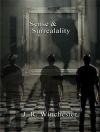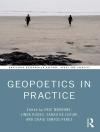Collected here are three of Dorothy Parker’s earliest works: two collections of poetry – ‘Enough Rope’ and ‘Sunset Gun’ as well as her short, hilarious collection of stories recounting all of the men she managed to avoid marrying named (appropriately) ‘Men I’m Not Married To.’ One of the 20th century’s most celebrated and renowned humorists, Parker burst upon the unsuspecting literary world with these best-selling books, delivering biting, satiric and insightful comments on love, life and literature that would make her a worldwide sensation.Dorothy Parker – social commentator, political reformer and legendary wit – has enjoyed a special place in American culture and ‘Sunset Gun’ is another early example of Parker’s unique and wry commentary on modern life. It is presented here in its original and unabridged format.
Sobre o autor
Dorothy Parker (1893-1967) was an American writer, poet, critic and screenwriter best known for her sharp, acerbic wit as well as her founding and participation in the renowned literary group, the Algonquin Round Table. Born Dorothy Rothschild in West End, New Jersey in 1893, she pursued writing early, joining the editorial staff at Vogue in 1916 and then becoming the drama critic for Vanity Fair magazine in 1917. She married Edwin Pond Parker II in 1917, retaining his last name after their divorce in 1928. Fired at Vanity Fair for her sharp tone in her critiques, she became a freelance writer, publishing her first book of verse in 1926, ‘Enough Rope, ‘ which became a best-seller. In 1919, Parker co-founded an informal quasi-literary group that would meet for lunch at the Algonquin Hotel in New York and featured some of the brightest and best writers of the age. Along with Parker, the group often included Robert Benchley, George S. Kaufman, Alexander Woollcott, James Thurber and Harpo Marx and became known as the Algonquin Round Table. The group’s gatherings became infamous for the participants’ witty, cynical, humorous and caustic banter and regular meetings of the Round Table would last until 1943. In 1927, Parker began her long association with The New Yorker when she signed on as their book critic and would contribute short and long pieces for The New Yorker for the rest of her career. In 1933, Parker and her second husband, Alan Campbell decamped to Hollywood to become screenwriters, collaborating or contributing to more than fifteen films, including 1937’s ‘A Star is Born, ‘ netting them Academy Award nominations. Parker’s politics would eventually get her blacklisted in Hollywood, but she never stopped writing. She lived in Hollywood until Campbell’s death in 1963, after which she returned to New York. In 1967, Parker suffered a heart attack and died at the age of 73. In her will, she left her entire estate to Martin Luther King, Jr. and, upon his death, to the NAACP. Parker’s ashes are interred at her family’s plot in Woodlawn Cemetery in the Bronx.












